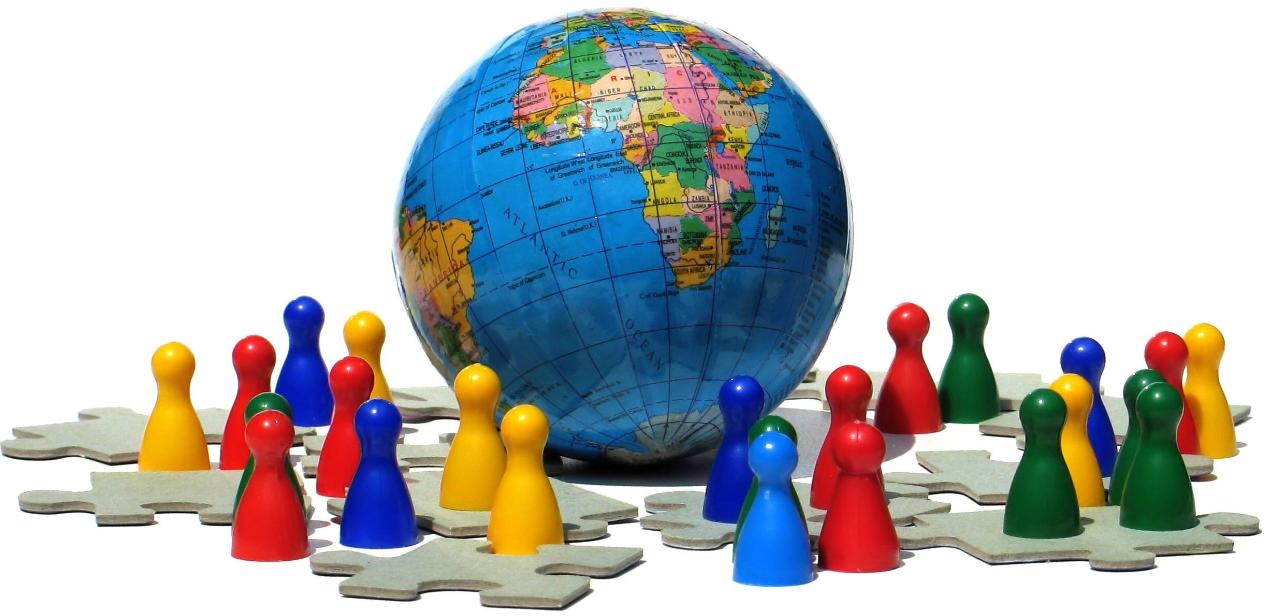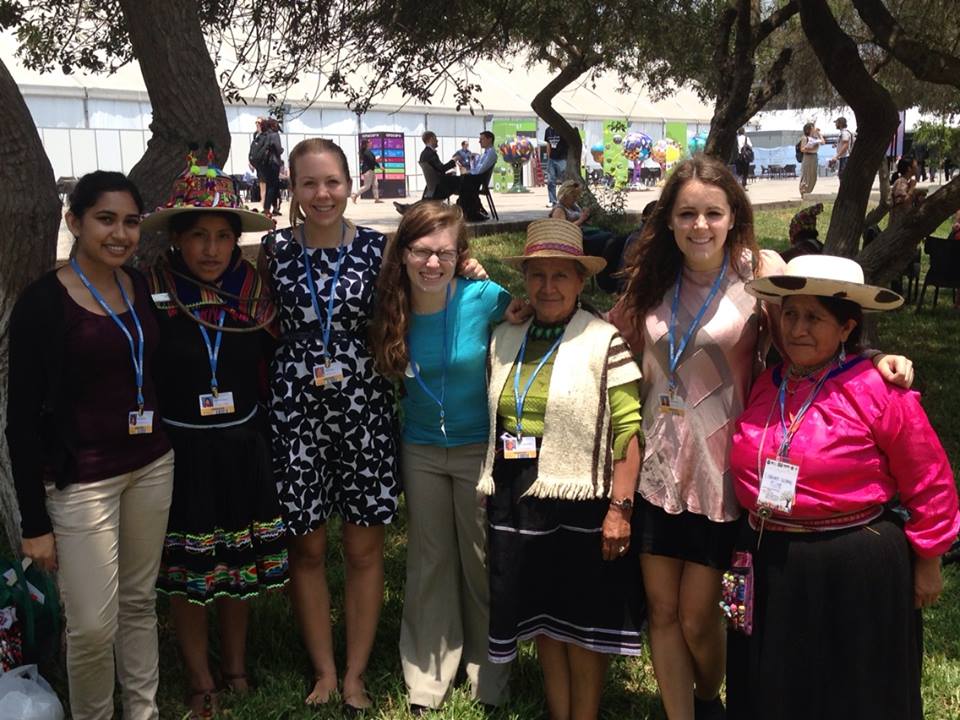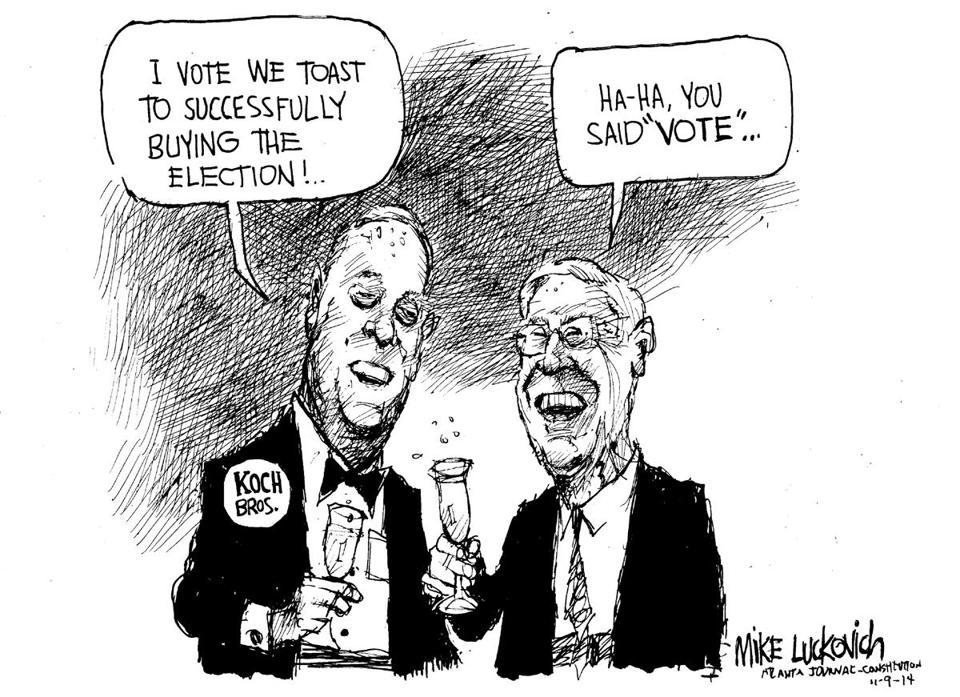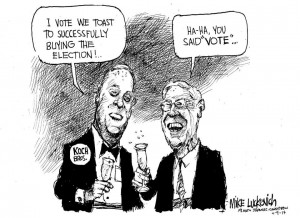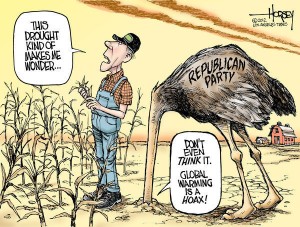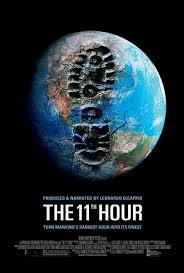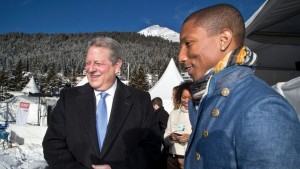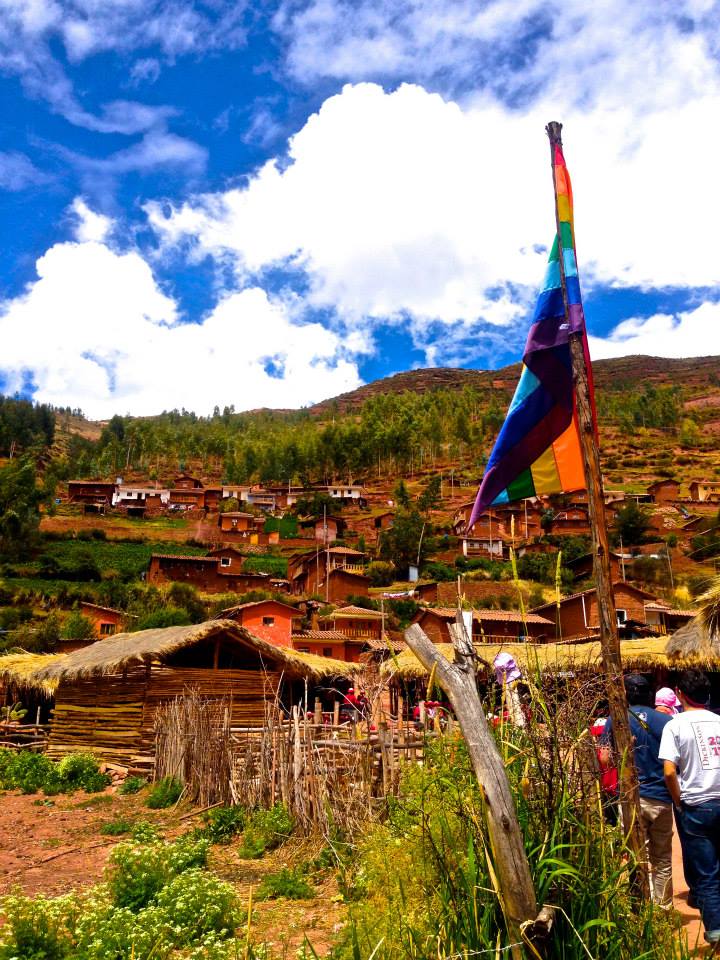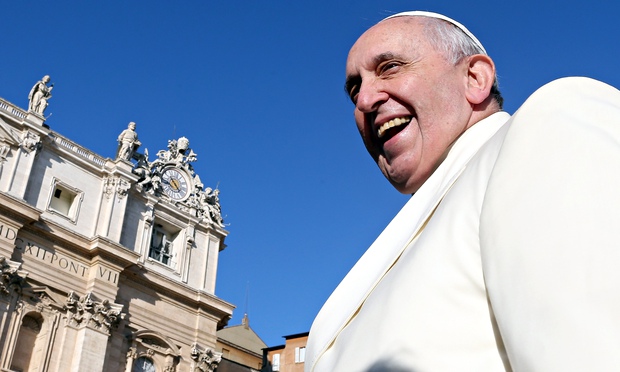At their core is the premise of lack, the notion that there just isn’t enough– of anything. Not enough food or fuel, jobs or jungles, parking spots or pandas, laughter or love… There isn’t enough goodness either. Our culture seems to whittle the human essence down to a caricature: We are selfish, materialistic, and competitive… So, the worldview we absorb everyday is driven by a fear of being without– without either resources or human qualities we need to make this historic turnaround. Within this Western, mechanical worldview that we absorb subconsciously, we are each separate from one another, and reality consists of distinct, limited, and fixed things. I think of it as the three S’s: separateness, scarcity, and stasis. that’s our world.” – Francis Moore Lappe
Sustainability at Otago – Cheers!

Studying abroad on a Non-Dickinson Program has been all but an easy experience. A couple of days ago I finally hit my month mark of being abroad and I am happy to say that everyday has gotten much better than the previous. It is with great happiness that I share the good news of my latest involvement with the S.E.A (Students for Environmental Action) community at the University of Otago. Finding a pool of like-minded people was exactly what I needed to finally feel like I had a place here. S.E.A. provides a safe space for open dialogue about pressing environmental issues locally and internationally. S.E.A hosts a variety of events ranging from coastal cleanup days, film screenings, Farmer’s Markets, lectures, seminars, workshops, etc.
S.E.A tries hard not to focus solely on local campus wide issuesbut rather extending out within the larger Dunedin community through Green Drinks. Green Drinks Dunedin is part of a non-political international movement to foster a safe space for people interested in sustainability and the environment. Green Drinks Dunedin is hosted by Sustainable Dunedin City, which is the local council on climate change activism. Last Friday I met with the head of the council and shared my experiences from COP20. She was delighted to invite me to share my experiences at the next Green Drinks Dunedin on Thursday, March 26th. I look forward to sharing my perspectives from COP20 and to continue to connect with individuals from all walks of life who truly value the environment. Cheers to keeping the conversation going on the road to Paris.
An Observer Role is Not A Staring Role
Although the COP20 was a couple months ago, one moment of clear inequity will be an indelible memory in my mind. In our climate change governance course, we learned that indigenous peoples had an observer’s status at the United Nations Climate Change Conferences. However, there’s always a difference between reading about something and actually seeing the thing you read about. Six of my classmates and I were fortunate enough to attend the COP20 as observers for the first week. I didn’t realize just how fortunate we were until I was interviewing an Amazonian indigenous chief. He discussed how difficult it was for him to gain access to the COP and how he was the only one representing his entire community. I looked down at my tag and then looked at his, I felt extremely guilty and wanted to tear the blue lanyard from my neck and hand it over to him. This chief, who’s highly respected amongst his peers and was fighting for his rights, had the same role as me. An observer.
He was at the COP to create awareness and protect his lands from being further threatened by REDD+, land claims and deforestation. While, I was at the conference for an undergraduate research project to gather information about his situation. This situation felt so unfair. In negotiations, delegates and members of the World Bank would discuss the future of the Amazon territory, while Amazonian indigenous peoples could only observe the discussion about the lands they inhabit. In addition, when the room was full or the negotiators did not want to answer any questions, all the observers were asked to leave the room, meaning they couldn’t even observe negotiations. Indigenous peoples are highly vulnerable to the effects of climate change since they often depend on the environment for their livelihood. Hence, I believe that indigenous peoples should have full participation in negotiations to express their concerns and situation.
Although, this video below is a little off topic, I thought it’s message was really interesting!
“Man and nature are two things, man is master”
So I just finished reading The Historical Roots of Our Ecological Crisis for my Sustainability, Social Justice, and Human Rights class… I have to say, I am left completely disagreeing with Lynn White’s perspective of our ecological crisis (coming from someone living in the 21st century while the article was written in 1976. When White says, “By destroying Pagan animism, Christianity made it possible to exploit nature in a mood of indifference to the feelings of natural objects” (White 1205) I began to wonder why I have never learned this Christian view seeing that I went to catholic schooling for several years and we supposedly were taught world religions. If I have to say I learned something from this reading I certainly have. The idea that Christianity establishes a dualism of man and nature but insists God’s will is that man exploits nature for their own ends is a totally new concept to me. (White 1205)
White’s main point is essentially that the joining of science and technology together had huge ecological impacts and that Christianity is to blame for this. She states, “I personally doubt that disastrous ecological backlash can be avoided simply by applying to our problems more science and more technology” which I do agree with. I don’t think technology advances will solve our problems- costly carbon sucking vacuums can only do such much for our atmosphere but behavioral and cultural changes along with changes in worldwide frameworks are what will solve our ecological disaster. Where I do not agree, however, is when White says the only way to solve our disaster is through a change in religion… “More science and more technology are not going to get us out of the present ecologic crisis until we find a new religion, or rethink our old one.”
This graph (2005) shows world religious identifications where 77% are not identified as Christian and of that 16% identified as nonreligious. Can you blame a global problem on 33% percent of the world? I don’t think so… furthermore, I do not think it’s plausible that any religious changes could make a significant enough impact to better today’s environmental crisis
White, Lynn. The Historical Roots of Our Ecological Crisis. 10 March 1967. Science 155, 3736; 1203-1207.
Listen to the People…That Means Republicans Too
The New York Time had an article today titled, Most Americans Support Government Action on Climate Change, Poll Finds. A recent study conducted by both the New York Times and Stanford University shed light on the changing mindset of the American people and perhaps more importantly American Voters. The republican party is notorious for its position of climate change, in fact I wrote a blog post last semester on what the republican domination of the last election meant for government action on climate change… it was not optimistic. So this research came as a happy surprise. Its opening line states, that “An overwhelming majority of the American public, including nearly half of Republicans, support government action to curb global warming… [and] two-thirds of Americans say they are more likely to vote for political candidates who campaign on fighting climate change.” The study also found that the majority of people (and about half of republican voters) would be turned off by a candidate who questioned the science of climate change or called it a hoax.
However, this study begs the question, why are republicans candidates not in line with the views of their consituents? Clearly half of republicans in office do not think government should take action on climate change. Of the 2012 republican presidential candiateds only one publicly acknowledged the science of climate changed and believed it to be “real,” and thought it would be beneficially to have some government policy for emissions reductions. The chair of the senate’s Environmental Committee is a republican by the of James Inhofe that literally wrote of book on climate change denial. Furthermore, the senate approved the Keystone XL Tar Sands Pipeline, pushed by republican leadership despite its dire climate consequences.
Perhaps the answer lies in campaign finance. It is no big secret that big oil companies contribute hefty amounts of campaign funds to politicians with some expectations on how their candidates handle climate change. The article states that, “advocacy groups funded by the billionaire brothers Charles G. and David H. Koch have vowed to ensure that Republican candidates who advocate for climate change action will lose in primary elections.” Perhaps the divide between republicans and democrats is not actually as large as we often perceive, maybe the problem lies in a much broader issue of how we allow large corporations to influence American politics.
The Eleventh Hour
This semester I am taking a course called Sustainability: Social Justice and Human Rights. Each week we have to write an journal entry and I wanted to share some of my entry from the first week of class. We watched the film The Eleventh Hour in which Leonardo DiCaprio had a narrating role.
“Week one 1/12 and 1/15
The first week of class we watched the film The Eleventh Hour, several main themes of this film struck my attention. First I want to mention the reappearing narrative of Leonardo DiCaprio. A few months ago I would have had NO IDEA that he was an environmentalist. I took part in the Climate Change Mosaic last semester where a group of 14 students and I went to COP20 (The Twentieth Conference of the Parties) in Lima, Peru. I first learned that Leo was an environmentalist a month or so prior to the conference, when he announced he would be attending the COP (Conference of the Parties). He never ended up attending the COP which is an entirely different conversation, but maybe if he had gone it would have done some good in terms of climate change awareness. Perhaps climate change needs a celebrity face to help engage the public and bridge the education gap. I envision something along the idea of the “Got Milk?” commercials that use celebrity faces to publicize their product.
Several ideas mentioned in the film resonated with me, particularly the idea of “current” sunlight versus “ancient” sunlight. These are terms that I have never heard before and I loved that they were brought up. When the world population was less than one billion people we could live off of completely current sunlight and on the other hand, with the exponential population growth we are experiencing today, we rely heavily on ancient sunlight. In general with this and many other environmental concerns, I always believe that a population limit would do our earth some good.
I am a supporter of the one child limit that China imposed for a period of time. The larger the population, the more stress on necessary resources. Think about the amount of clothes a single person goes through in their entire lifetime. All the materials that go into making them; millions of acres that are used to grow cotton to make a simple white t-shirt, shipping, fueling the factories clothes are actually made in. I think about the amount of food I consume daily… Personally, I don’t even eat that many processed foods and I don’t eat meat. I am one person; I consider myself to be a fairly sustainably minded person yet my carbon footprint is HUGE. “The UNICEF estimates that an average of 353,000 babies are born each day around the world.” (http://www.theworldcounts.com/stories/How-Many-Babies-Are-Born-Each-Day)
This is disgusting and quite frankly I believe that this rate needs to slow down and it needs to slow down as soon as possible. Think about how many resources are needed to supply 353,000 people… Society cannot just keep growing at this exponential rate and assume there is going to be infinity of this “ancient sunlight”. The Eleventh Hour also mentions that humans are the only species to recognize the future and know that there is a future. You’d think maybe we would treasure this ability and plan better for the future.”
Preparation for Paris
The post Lima preparation for Paris is already underway. While each country and their delegations have their own expectations and responsibilities, it is imperative that the entire global community prepares as well. What better way to spread global awareness and participation than with live music!? Al Gore and pop icon Pharrell Williams have teamed up to announce a global Live Earth concert in June. This concert, with its purpose to demand climate action, will be staged in six cities on all seven continents. Yes, Antarctica will also be participating in this global event. On this day, the entire globe will stand up together for a cause that is affecting all aspects of our shared planet. The ultimate goal of this music festival is to collect 1 billion signatures to encourage world leaders to adopt a new climate agreement in Paris at COP21. There is a lot of pressure for the outcomes in Paris, especially after 2014 was recorded as the Earth’s warmest year on record. A global event like this could be groundbreaking for increasing public action and awareness.
[youtube_sc url=”https://www.youtube.com/watch?v=IALnX1qGx7w”]
http://www.rollingstone.com/music/news/pharrell-al-gore-live-earth-2015-20150121
Post COP Commentary
“I attended a United Nations Conference on Climate Change.” I have said this sentence many times over the weeks following COP20 in Lima, to friends, family, and random aquaintences that asked why I spent the three weeks following thanksgiving in Peru. “Afterwards, we traveled both as a group and individually; so I got to go to the Sacred Valley, Machu Picchu, and then Lake Titicaca and Arequipa.” My response when asked what I did with the rest of my time in South America. All-in-all not a very causal conversation, but one I am fortunate enough to get to have.
However, I learned to use only this exchange after several failed attempts to explain the trip. Upon returning home I was frankly shocked at just how few people I talked to that had never heard of the conference, let alone knew that it was an anual event happening then. Initially I responded to the inevitable, “So what did you do in Peru?” with, “I was at COP20 doing research with my school.” Confused faces egged me to elaborate, “You know the UNFCCC conference?” (always said as “UNF triple C” because as Neil taught us, only dweebs would say C three times). This never worked so I would continue with something like, “Remember the Copenhangen Conference a few years ago? Or maybe the Kyoto Protocol? It was like that but this year’s conference in Peru.” Sometimes this would work, however, I have a suspicion that many of them who just smiled and nodded with some vaguely affirmative phrase, did so not in understanding but as a means to change the course of conversation to a more familiar topic.
After a full semester of nothing but talk of the climate change and the UNFCCC, I had forgotten that just a few short months ago I too would have been equally unaware of what happened in Lima. Finally, my family confronted me saying I needed to find a way to explain what I did in a way that would allow people to understand.
However, I was talking to people who know at least the basics of what is happening with climate change, have maybe even read an Inconvenient Truth or the Omnivore’s Dilemma, fully believe the science, and furthermore, enjoy following world news and current events. They were aware of China- US deal to curb emissions and yet, only a few had even heard of the UNFCCC, or COP, and were able to converse about what happened in Peru. If even the people who are well educated, generally aware and genuinely care about climate change are not well informed of a hugely important and impactful process, how are world leaders supposed to feel a great pressure to make real progress? In not throughly and consistently covering what happened in Lima at the larger news outlets and mainstream media there is an immense disservice to both the public and the UNFCCC process. I noticed a lack of conversation about Lima even from the many environmental organizations I receive emails from. I usually have an inbox full of updates, petitions, and information about how to get involved in important environmental battles. Yet, nowhere did I see this type of awareness raising or request from their constituents to press for international cooperation and action to come out of COP20.
Obviously the uphill battle of climate change cannot be won if we focus exclusively on the UNFCCC or the outcomes of a COP. The issue is complex and requires action on individual, local and domestic levels as well. However, we need to fight on every front possible, especially the international level, to stand a chance. I believe that by essentially ignoring it, we are all but surrendering.
Pope Francis Addresses Climate Change
By Maeve Hogel
Whether you are religious or not, Pope Francis’ climate plans for 2015 brings together religion and science, two topics that are often seen as conflicting by nature. According to the Guardian, the Pope hopes to be more involved in climate negotiations next year in Paris. However, what is it exactly that the Pope can bring to the table for international negotiations? 1.2 billion Catholic followers (just under the population of China and three times the population of the United States). I never stopped to consider the role of religion in mitigating climate change, but Pope Francis’ statements, asking Catholics worldwide to preserve and protect the environment have certainly gotten a lot of attention.
Of course these statements haven’t been supported by everyone. Fox News reports claim that the climate change argument has weakened over the past two decades and that the Pope is putting himself at risk for making enemies.
As we head into 2015, it will be interesting to see if religious leaders will begin to take more of a stance on climate change.
The Food System and Climate Change
Two billion people all over the world are affected by iron deficiency contributing to anemia. Two hundred and fifty million children suffer in more than half the countries on the planet suffer from Vitamin A deficiency. And 805 million people suffer from hunger. In the U.S. though, 1.3 billion people are overweight or obese due to a diet that is damaging to our bodies and our environment.
How could something so simple as eating, the most natural human activity, damage our environment? It is in the way in which our food system is set up, built upon fossil fuels. In the tropics, destruction of natural rainforests for agriculture contributes to 12% of total warming annually, even though only 50% of the food produced ever make it onto a plate. The creation of chemical fertilizers rely on oil, coal, or natural gas to supply the hydrogen gases necessary to artificially re-create the act of nitrogen fixation. Corn- and soy-fed cows consume on average the equivalent of 35 gallons of oil in their lifetime, due to the fertilizer used to grow their corn, transportation emissions, and many other sources of emissions along the industrial food chain. Wet milling, the process factories use to break down corn into factories to become cornstarch and various sweeteners, burns 10 calories of fossil fuel energy for every calorie of processed food it produces. It takes 1.3 gallons of oil to make 4,150 calories. Food transportation is yet another contributor to GHG emissions, producing about 12% of emissions in developed countries, such as the United Kingdom.
The food supply chain greatly affects climate, but a warming climate will also affect the food supply chain. It disrupts crop yields and pushes food prices up, increasing food insecurity for the world’s population. A study led by the Harvard School of Public Health found that rising CO2 levels strip foods of vital nutrients, which will increase the number of undernourished children in developing countries. In Africa, this number is expected to rise ten-fold by the year 2050.
Poverty and climate change are self-reinforcing. As climate change threatens crop production, the number of hungry and malnourished in the developing world will increase, which will result in unsustainable practices in these places to meet their current needs. To mitigate climate change, and in turn allay undernourishment and poverty, we must reimagine our food system. We should support small farms, which will rely less on fertilizers due to their being polycultures (most likely, because it will make more financial sense for a small farm), as opposed to many corn farms in Iowa, which are grown as monocultures with no other plants and animals, other than corn and soy. We should convert degraded lands into productive farms, which will help adapt to and mitigate climate change, reduce rainforest destruction, along with enhancing global food security. Breastfeeding for infants is a highly sustainable intervention that will reduce the carbon footprint of our food consumption.
As we near the COP and the world inches ever closer to the 2 degrees C limit, we must remember not to treat climate change as an isolated issue. Every action we take will affect it, and it, in turn, will affect every action we take.
All statistics without a link from The Omnivore’s Dilemma by Michael Pollan

